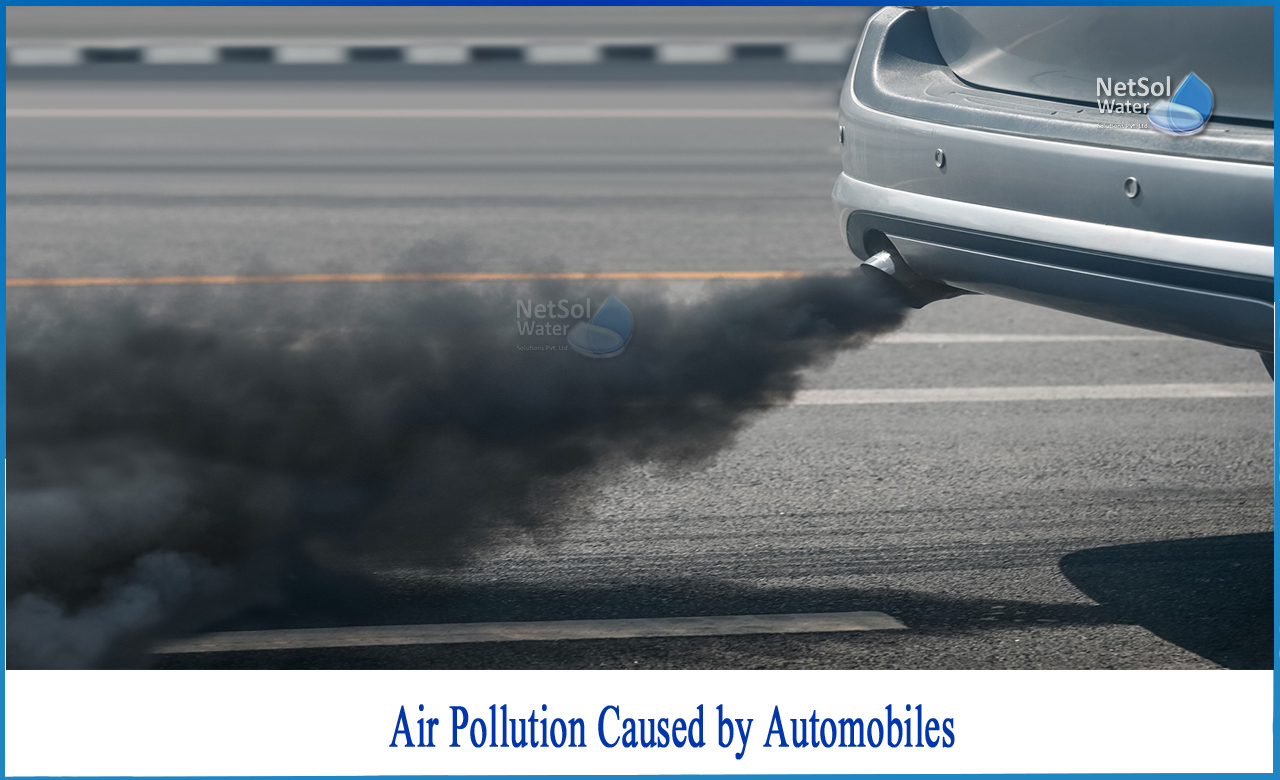How do automobiles pollute the air?
Due to the vast number of individuals who possess automobiles, its innovation has continued to have a major impact on the world. This overdependence on automobiles has raised environmental and health issues, sparking a slew of international disputes. Automobiles have a significant environmental and lifestyle impact, which can be linked to the combustion of fossil fuels.
Automobile pollutants come in a variety of forms, including carbon monoxide, hydrocarbons, nitrogen oxides, volatile organic compounds (VOCs), and particulate matter. Furthermore, evaporative emissions are caused by fuel vapours that have not entirely combusted and are released into the atmosphere. The vapour may be controlled by correctly capping the fuel tanks, avoiding overfilling the gasoline, and repairing any leaks. Automobiles also emit smoke, which contains unburned by-products that are hazardous to the eyes and respiratory system, putting people's health at risk. This, however, is dependent on the length of exposure, the age of the individual, his or her health, and the concentration of these gases to which he or she is exposed.
Causes Of Automobiles Pollution
Motor vehicles have long been linked to air pollution when they are driven, fuelled, manufactured, and even disposed of. Furthermore, contamination happens throughout the distribution and refining of fuels. Many people have acquired autos as a result of urbanisation, which has resulted in increased traffic and pollution.
1: Particulate Matter - Particulate matter, which are metal and soot-containing particles that cause smog to become murky, is one of the most significant motor vehicle pollutants. The particles are so small that they represent a serious threat to human health when inhaled, causing damage to the respiratory system. Because nitrogen oxides, sulphur dioxides, and hydrocarbons are emitted along with the particles, they are classified as secondary pollutants. Particulate matter in the atmosphere is made up of particles with a diameter of less than 10 micrometres. Smoke and soot from incomplete combustion, especially from diesel, are found in larger particles.
2: Carbon – Monoxide - Carbon monoxide emissions are increased by poorly maintained ancient autos with malfunctioning emission control systems. Furthermore, a cold engine emits more carbon monoxide than one that is warmer. As a result, city emissions of this gas are significantly higher in the winter than in the summer.
3: Nitrogen – Oxide - Nitrogen oxides are responsible for the development of acid rain as well as ground-level ozone. As a result, respiratory irritation develops, potentially worsening associated conditions like asthma. It causes a reduction in lung capacity, making one more susceptible to infections such as asthma, influenza, and pneumonia.
4: Hydrocarbons - These are another component of automobile pollution. They react with nitrogen oxides in the presence of solar energy, causing ozone to be depleted at ground level, resulting in smog.
Ways to Reduce Air Pollution caused by Automobiles
1: Take a bike ride or go for a walk- Consider riding a bike or walking instead of driving if you are just travelling a short distance. While reaching where you need to go, you can get some exercise and enjoy the fresh air!
2: Take advantage of public transportation - Consider choosing public transportation instead of driving if you need to get somewhere along a bus or light rail line.
3: Carpool - When driving to school or work, attempt to carpool with others who are travelling in the same direction. You may save money while also reducing the quantity of fuel consumed.
4: Make use of alternate energy sources. - Alternative fuels are less polluting than conventional gasoline and diesel. Electric automobiles and flex-fuel vehicles that may use ethanol blends are examples of alternative fuel vehicles.
Conclusion
Automobile pollution has a wide range of health consequences, ranging from respiratory irritation to neurological damage and cancer. This is due to particulate matter, carbon monoxide, volatile organic compounds, and nitrogen oxides, which impact not just the driver but also pedestrians.
To protect the public's health, efforts must be made. Simple rules, such as ensuring proper air movement in and out of the car, are recommended to protect human health. More health issues arise as a result of traffic congestion and proximity to high-polluting autos.
How can Netsol Water help?
Netsol is a pure-play technology firm that provides a wide range of solutions aimed at addressing water, wastewater, waste and air-related concerns throughout the world, including resource conservation, optimization, recycling, and reuse.
Netsol Water is Greater Noida-based leading water & wastewater treatment plant manufacturer. We are industry's most demanding company based on client review and work quality. We are known as best commercial RO plant manufacturers, industrial RO plant manufacturer, sewage treatment plant manufacturer, Water Softener Plant Manufacturers and effluent treatment plant manufacturers. Apart from this 24x7 customer support is our USP. Call on +91-9650608473, or write us at enquiry@netsolwater.com for any support, inquiry or product-purchase related query.



